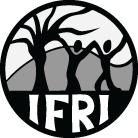Socio-economic assessment and monitoring workshop
IFRI researcher Peter Newton recently attended a workshop on socio-economic assessment and monitoring at the Food and Agricultural Organization (FAO) of the UN in Rome.
The principle objective of the workshop was to explore potential mechanisms by which to develop a socio-economic monitoring (SEM) component to the National Forest Monitoring and Assessment (NFMA) program. Representatives from CIFOR’s Poverty Environment Network (PEN), the World Bank’s Living Standards Measurement Study (LSMS) and LSMS-Integrated Survey on Agriculture (LSMS-ISA), PROFOR’s Poverty Analysis Toolkit, and the REDD+ Social and Environmental Standards (SES) all gave an overview of their methods and relevance for the NFMA-SEM, as did IFRI. The presentations and discussions illustrated the complementarities between many of these programs and their methods.
With 20 years of experience in collecting and analyzing data on tropical forest management, IFRI is well-positioned to offer some useful insights. Of greatest interest and relevance to the development of socio-economic monitoring:
1) IFRI is able to draw from its experience of identifying the indicators most often associated with improved socio-economic and ecological outcomes. We are planning a series of workshops at SESYNC this year that will refine the list of priority variables for IFRI.
2) The IFRI method explicitly links forest vegetation data and community and household-level data on forest use.
3) IFRI has extensive experience of analyzing joint socio-ecological outcomes, which may be useful to the seocio-ecological monitoring initiatives at the data-analysis stage.
News
IFRI Special Issue Collaboration
(17/09/2016)
FLARE Announces Keynote Speakers

